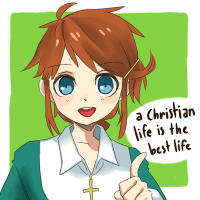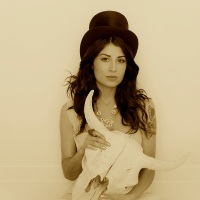Georgian Lessons #3: Mystery And Truth

April 9th Commemoration – Secular Day or Orthodox Ceremony? Both.
Here then are the observations that began to accumulate around me after my journey to the Holy Trinity Cathedral (Tsminda Sameba) in Tbilisi Georgia. I don’t mean these to be anything definitive, nevertheless I did begin to comprehend something that had been tickling my eyes and ears for a couple of weeks.

Tsminda Sameba rising above Tbilisi.
First of all there was this: If in an Orthodox Church the actual times do not matter the way they do in America or Northern and Western Europe, to different degrees, then that helped to explain the rather casual attitude towards work and punctuality. Why only this week I stepped into my local Presbyterian Church and they were discussing whether it was exactly 10 o’clock or not. (‘No we still have a minute to go.’ ‘Well my watch says 10.’) This attitude would be positively incomprehensible in Georgia and I suspect many Orthodox countries. And this would make it quite difficult to enforce Western or East Asian standards of business production. Thus anyone coming from outside Eastern Orthodoxy expecting a certain kind of timeliness would feel very disappointed. But I adjusted my own expectations accordingly. When I went to see Nino Sukhishvili I was constantly playing tag with the times. I didn’t really lose a beat over this. People seem to come and go. And when I went to the theatre or the ballet the shows did start generally, though never precisely, on time.

Just a Wednesday afternoon, people coming and going… to church.
Next and much more to the point. The Orthodox church service did not revolve around the sermon. In an American church, Protestant or Catholic, in many ways the liturgy builds up to the message. It’s a little less with the Roman Catholic Church who focus upon Communion, but it’s certainly still there. And when one leaves you discuss the message to compare what one already believes with the words of the minister. Did the sermon stick with the Bible? Was it delivered well? Did the words ring true?
Now what this means is that not only is the emphasis upon the truth of the message, but in fact this weighing of the message for truth is a hallmark of Western Christian culture. And it is also a fact that although the vast swaths of Europe and America think about God as much as they do the country of Vanuatu they nevertheless have inherited the same approach to ideas. So that an atheist judges the truth of a thing the same way. A third wave feminist who blames the Christian patriarchy for the sins of the world still will react with a miffed ‘That’s not true.’ Or perhaps ‘That’s just so wrong!’ So our churches have grown stale over the years but the assertions of truth don’t end, even if the speaker claims that Truth doesn’t exist.

Someone found pruned grapevines shaped like the cross and tied them to a very random spot. Grapevines have a special meaning in Georgia.
Now look at Georgia and the Orthodox Church. I’m sure people care about the Truth in Georgia. But not in the same way. In fact, unlike the western branches of Christianity, the Orthodox Church believe the Bible is true and yet don’t really try to harmonize science and the Bible. In other words the Bible is true AND science is true. And I see no force trying to reconcile the differences. Now again I don’t see everything going on, but I do know that is a feature of Orthodoxy. In other words there are no ‘creationists’ in the Orthodox faith. There is paradox. Two truths held together. Looking from my position on the West Coast of the USA that strikes me as, well, radically different. So what this means in practice is that there is a lot of leeway in belief. But God created the world and Christ died for us and was resurrected. And maybe things most likely evolve or maybe not. It’s just a human idea.
What this means practically in international relations is this. Remember Russia is an Orthodox country. Even if that Orthodoxy is suppressed as it was during the Soviet Era. What happens when Americans come over with their true or false mentality? It just seems rather silly to them. Especially since publicly we change our truths like we change our socks. One minute, after World War 2, one must be a good member of the Christian Democratic world. The next they see us haranguing them about homosexuality, which only a few years back we weren’t in favor of. Is it any wonder that there are major conflicts? Neither side is even on the same page. How to communicate? Now Georgia isn’t Russia. That must be said. But many of these issues still hang over them as well.

An ancient church slowly being repaired. (Tsminda Sameba in the background.)
And here’s one last Orthodox observation. The point of the service seemed to be the glorious mystery of God. The words seemed secondary. But the music, the actions of priests, the reverence of the congregation definitely seemed focused upon that aspect of faith. And that affected everything. For one thing the music was not being passed around to amateurs. The five women singing may have been mere congregants, but the sounds coming out of their voices put to shame anything I’ve heard in a western church service for my whole life. Only once in a while have I ever heard a church choir come anywhere near the beauty of that music. In America we value inclusiveness over the quality of the music. It is rare that I hear good music in churches these days. The songs we sing together are again more about collective feelings than anything to construed as depth. Every now and then we sing the old standards, which still are glorious (Amazing Grace, O For A Thousand Tongues, How Firm a Foundation) But even those get updated. (How on heaven or earth is Amazing Grace improved by adding a chorus???)
Or here’s another comparison: If I enter the standard Protestant church, or even many Catholic churches, is there any reminder of God’s mystery, his Otherness? If I walk into that same local Presbyterian church the answer is a resounding no. Not in the folksy/poppy music. Not in the various activities of the church, not in the potlucks, not in the architecture, not in the quilted wall hangings, occasionally the sermon gives hints. And that’s about it. So our inclusive faith essentially makes God into our pal. Make sure no one squirms.
Now again what is found in our churches is found in all aspects of our culture. And it’s a two way street. We’ve just become folksy dorky self-conscious people. Real things bother us. Even the approach to nature among folks who would never step into a church these days is often mostly recreational. We could all stand to watch and understand the great Russian films of Andrei Tarkovsky. Our walks into nature would change immensely. In his very Orthodox films the textures of the environment become alive and mysterious. But again we like to make things casual, cool, no biggy. And thus we live in a neutered world, as we gaze into our hands and make magic swishing motions over the devices at our fingertips. So yes I was overwhelmed to find God’s mystery in the Georgian Orthodox Church.

St. George overlooking a street in Tbilisi.
My feeling is that a cross-pollination between Western questing for Truth (capital T please) and Eastern Orthodox Mystery would be a beneficial thing on both sides. But I’m not sure they need our postmodern casualness however. Yet that seems inevitable as the ‘blessings’ of pop culture descend like crematorium ashes across the whole world.
(But we’ll get to that soon enough… Come back again for our next Georgian Lesson.)
Byrne Power
Haines, Alaska
November 14th 2016








Quite a set of statements and type of discussion, comparing hours and minutes in a country which you might find here in rural America. The people in Holmes County MS USA live a quite world, changing in the old-white south to become African American, families are inward looking, care for the fundamental Concepts of the Pentecostal or free will Baptist theologies. Nothing from outside has any meaning to the family units. My husband and I walk as if we do not exist. The Jesus loved and respected is black. the churches rarely change the expectations of children or young adults. Gospel music, blues, hip-hop can be heard often from cars and homes, the people sit outside with family having meals, all of the relatives appear, the get together last all afternoon in to the night.
In the area you photograph and write about fits right into the discussions I have with my husband and few friends in other areas of the country. The Orthodox church is slowly becoming a study in a circle of people I know. Also Arthur has an excellent background in historical Christianity-which to me must be included in the future intercommunication and development of churches (that are dying here) in the Bible Belt with religious groups in other areas that need understanding and support. We are so padded with materials good-consumerism is like a small god. One wants to leave having goods, to just having enough food and a resting place in a home of some kind.
Viewing these Georgian villages or towns with people intent on family, church and community, what type of work is performed there?
November 16, 2016 at 11:15 PM
Thanks Annette. Interesting observations. yes America does have some spots that might surprise a few folks. What kind of work do they do? You name it. Georgia is an educated country full of as many jobs as can be imagined. And they are quite creative. That’s what makes it such a fascinating country. It’s what they manage to save in the midst of the modern world.
November 16, 2016 at 11:33 PM